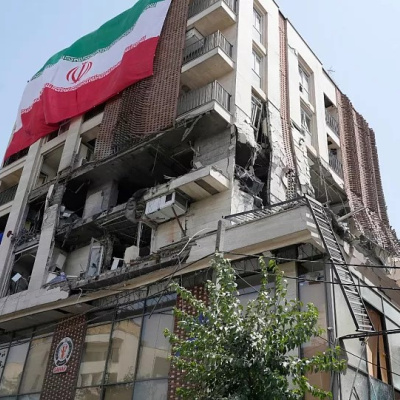
Title: Israel’s Threats: A Test of National Unity and Diplomatic Resilience
Ceasefire Under Strain: Israel’s Provocations and Iran’s Defiance
A fragile ceasefire currently exists between Iran and Israel, yet tensions remain high due to Israel’s repeated violations of agreements in Lebanon and Gaza. Analysts suggest that Israel’s recent aggression was an attempt to exploit perceived divisions within Iranian society, banking on declining public trust. However, the Iranian people decisively rejected this narrative, standing firmly behind their government in defense of national sovereignty.
Leadership Praises National Solidarity
Iran’s leadership has commended the nation’s unity in the face of external threats, emphasizing the resilience and wisdom of its citizens. High-ranking officials, including the President and Judiciary Chief, have stressed the importance of maintaining this cohesion. Yet, the pressing question remains: How can this unity be sustained?
Challenges and Opportunities for Reform
Iran faces multifaceted challenges, including economic disparities, declining welfare standards, and weakened public trust—issues exacerbated by years of external pressure. However, the current surge in national solidarity presents an opportunity for meaningful reforms that bridge societal gaps and restore confidence in governance.
Key Steps to Strengthen National Unity
Curbing Divisive Rhetoric: Authorities must address individuals and groups whose inflammatory statements sow discord, ensuring national discourse remains constructive.
Lawful Measures Against Infiltration: Firm, lawful action must be taken against those who align with hostile foreign agendas, maintaining stability without unnecessary escalation.
Humanitarian Gestures: Releasing political detainees or granting temporary furloughs could ease tensions and demonstrate goodwill.
Support for Vulnerable Groups: Targeted subsidies for low-income households can alleviate economic pressures and reinforce social justice.
National Dialogue: Facilitating inclusive discussions with trade unions, political groups, and civil society fosters a sense of participation and belonging.
Cultural Flexibility: Reducing unnecessary cultural restrictions, particularly on dress codes, can ease generational tensions and promote harmony.
Media Reform: State media should better reflect public voices by hosting independent analysts and balanced critiques, enhancing transparency.
Anti-Corruption Measures: A transparent digital system for government contracts and budgets would bolster public trust in economic governance.
A Path Forward
Swift, tangible reforms—implemented with transparency and public engagement—can solidify national unity and counter external threats. By addressing internal challenges decisively, Iran can turn this moment of solidarity into lasting progress.
—Analysis by Mohammad Reza Yousefi Sheikh-Rabbat